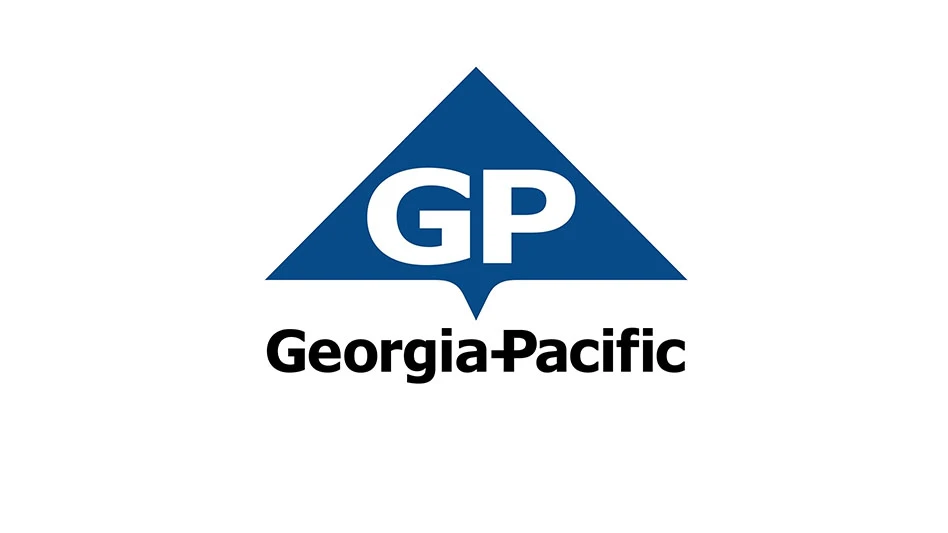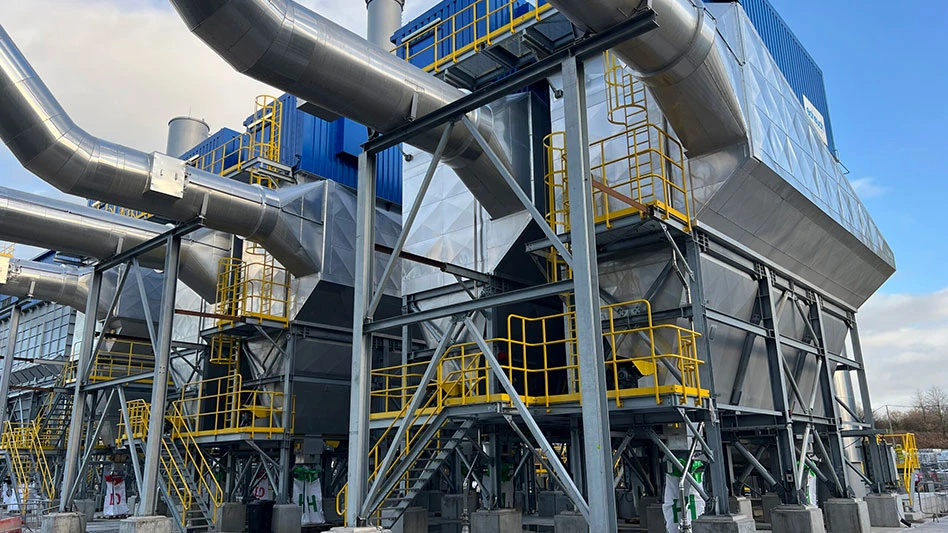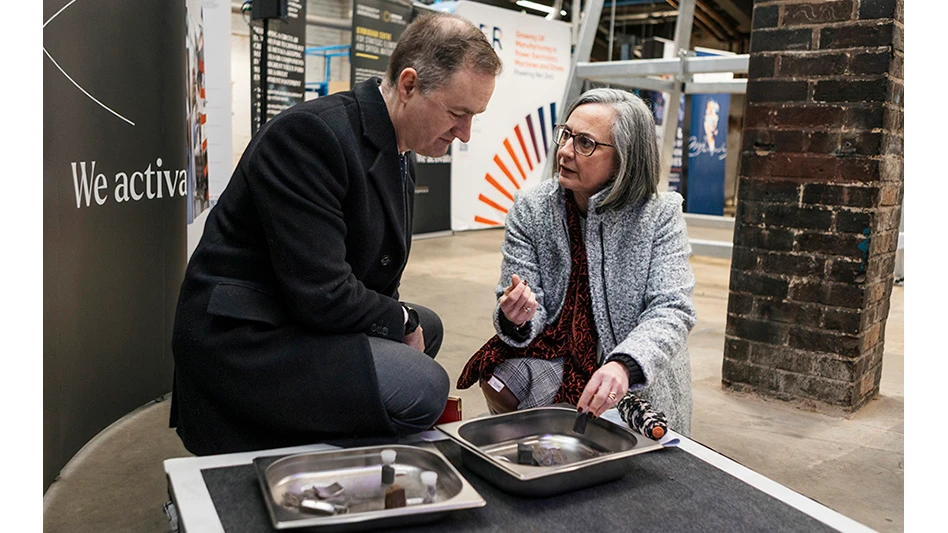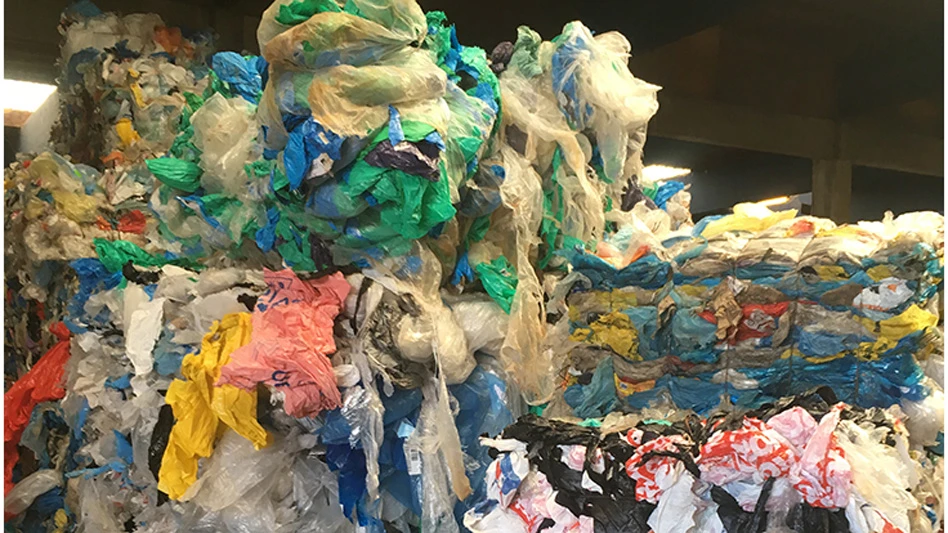From humble beginnings as a recycler of computer punch cards, Allan Company, Baldwin Park, Calif., has grown steadily to become the largest paper recycler in the Golden State. When Steve Young began his business nearly 40 years ago, he specialized in collecting computer punch cards (or "tap cards") from offices throughout the Los Angeles area.
With that business as a start, Steve and a growing team of key people (now including Steve’s sons Jason and Steve Jr.) have expanded the business into a multi-location company processing virtually all paper grades and several other recyclable commodities.
| AT A GLANCE: ALLAN CO. |
|
For Allan Co.’s managers, ambition has its limits, and one of those limitations is keeping operations within one day’s drive time. "We probably could operate successfully in other states, but we have kind of a standing policy," says Jason Young. "If you can’t drive to the plant in one day (from Los Angeles), then we’re not interested in owning it." There are several reasons for the unspoken rule, according to Jason and VP of marketing Don Rogers. First and foremost is quality. "We have customers where quality is on the line all the time," notes Jason, adding that it becomes more difficult for corporate officers to ensure ongoing quality at operations they are not visiting on a regular basis. Additional reasons include security issues and paperwork limitations. "In our business, there is a lot of cash to handle, so there are security issues," notes Jason. In terms of paperwork, operating in other states would introduce the company to "a whole new set" of environmental and regulatory rules, in addition to California’s, which most business owners consider to be time-consuming on their own. |
FROM HERE TO THERE
As with many recycling companies, Allan Co. can trace its roots back to one individual with an idea and a lot of ambition.
"My grandfather worked for one of the larger paperstock dealers in Los Angeles, and my dad eventually began to service smaller computer punch card accounts for them," remarks Jason Young. "Eventually, he leased a small working area in Baldwin Park, about 15 miles east of Los Angeles."
That space in Baldwin Park remains the headquarters of Allan Co., but the elbow room required by the company has burst far beyond the walls of the Baldwin Park facility.
Growing, at first, one commercial account at a time and then entering into the processing of curbside commodities and California Refund Value (CRV) containers, Allan Co. facilities can now be found throughout southern and central California.
Additionally, the company has brokerage offices in Arizona and Illinois, and the company and members of the Young family have ownership interests in other recycling plants and businesses that do not carry the Allan Co. name.
The growth story has not been based on high-profile buyouts funded by debt or traded stock. "We don’t set a plan or goal to, say, buy five plants in a given year," notes Don Rogers, Allan Co. vice president-marketing, who has been with the company since 1983. "We always have the desire to own more facilities, but it’s a matter of an opportunity that fits what we want."
The company seems to have grown equally in all directions over the past three decades, taking on new types of accounts, new paper grades, new geographic regions, new materials beyond paper (such as plastic, glass and aluminum) and shipping to destinations beyond its original market reach.
"Originally, we exported all of our paper," says Jason, "and we didn’t really have any domestic contacts. Things have changed a lot. Right now we’re shipping about 50 percent of our paper domestically, and we do business with virtually every mill on the West Coast."
The company’s volume of material shipped is substantial enough that it still serves the hungry Asian export market. "In the Far East, we have a great reputation, and we are known for our quality and reliability of shipments" says Steve. Allan Co. has been providing recovered fiber directly to consuming mills overseas for more than 30 years.
Computer punch cards have, in large part, gone the way of the eight-track tape, but Allan Co. made the transition to all the other commonly traded paper grades, as well as taking in the beverage and food containers collected in California’s household recycling bins and CRV buy-back centers.
The company now markets more than 1 million tons of secondary fiber each year, with old corrugated containers (OCC), old newspapers (ONP), pulp substitutes, ledger grades, mixed paper and office grades being its mainstays. "Our largest volume commodity is corrugated," notes Jason, who adds that the ONP grade and double-lined corrugated cuttings are next as volume leaders.
Beyond secondary fiber, the company’s plunge into curbside and bottle bill commodities has helped it become a major player in aluminum used beverage containers (UBCs), plastic containers and glass cullet.
The company has accomplished this growth in a way that has not drawn undue attention to Steve Young or the Allan Co. name. Avoiding debt and risk have been lynchpins of the Allan Co. philosophy, as Steve Young told attendees of the Paper Recycling Conference & Trade Show in New Orleans earlier this year.
"Make no mistake, this is a tough, cyclical, sometimes non-cash flow-positive, risky, low-return business," he stated bluntly. But, he added, the growing demand for recyclable commodities, particularly in Asia, means that money can still be made by recyclers if they follow sound business practices.
CROSSING THE SINGLE STREAM
Although playing it safe is an Allan Co. trait, the firm has still been a pioneer when its leaders are convinced it makes sense.
One of the more capital-intensive risks has been the switch to the single-stream processing of materials collected through curbside programs.
"We’ve done numerous things to figure out the best way to process materials; we’ve tried everything under the sun," says Rogers. "The first curbside processing method was dual-stream, and all you needed was a straight belt with people to pick."
Allan Co.’s findings with single-stream have mirrored those of other companies: They have seen volumes collected increase, but have had to invest significantly to make sure the quality of finished commodities remains high. "We were one of the first to process single stream," says Jason. "Our tonnage went up. There were piles of material; we tried to throw people at it, but that became expensive. Subsequently, sorting systems have evolved tremendously—they are engineered to spec. The problem is the investment in sorting equipment is very significant, but the evolution of single-stream sorting equipment is rapid," he notes.
The company’s leaders do not see the trend reversing. "The profit streams of single-stream residential commodities cannot be ignored," says Steve Young. In his remarks at the Paper Recycling Conference, Steve said, "Currently, all but two of our facilities, year-to-date, are turning a profit." And he noted that those two facilities had been recently acquired.
"Single stream is not going away," agrees Jason. "The difference in hauling costs is significant."
In addition to forging the single-stream market ahead of many other companies, Allan Co. has also plugged itself in to the State of California’s CRV system.
"All our plants are CRV buy-back facilities," notes Rogers. The arrangement means Allan Co. must track its returned containers carefully for the California Department of Conservation, but it also means that customers are heading into their facilities on a regular basis. "Some plants have 300 to 400 customers daily. Many of these bring in not just CRV containers, but also corrugated and news," says Rogers.
Under the California CRV arrangement, the Allan Co. reimburses individuals for the deposits they have paid on beer, soft drink, juice and bottled water containers. Allan Co. then submits its buyback and recycled commodity shipping records to the state for eventual reimbursement.
The arrangement has meant that the company deals in materials well beyond its original specialty of scrap paper, but the added markets can be worthwhile. Acknowledging that a lot of recyclers are down on glass, Jason says it is not a problem material for Allan Co. in California. "We have the CRV value on the glass, so we get a redemption fee back, plus we have a market to sell into, so we get some commodity value."
Plastic, though, can be more problematic. "Sometimes you cannot bale it for what it is worth on the pier," Jason says of plastics pricing. "It’s part of the CRV program in California, so it comes in to us. The problem with the end markets has been companies starting up and then shutting down two years later."
He hopes that more stable plastic markets, perhaps abetted by plastic lumber and decking, will be established. "As an industry, we need to handle this product. It’s growing as a packaging product."
PACKED AND SHIPPED
Paper remains the leading commodity of Allan Co., and the firm continues to draw material from a broad range of sources well beyond curbside recycling programs.
As one new sourcing method, Allan Co. now operates The Shredders, a document destruction service that offers bin placement at offices and warehouses throughout Southern California.
Documents are taken to a high-capacity shredder (10 tons per hour) at a facility where state-licensed security guards ensure clients that documents are shredded securely.
The bales of shredded office paper add yet another grade of paper shipped by Allan Co., joining OCC, ONP, mixed paper, CPO (computer printout), SCL (sorted colored ledger) and a general office pack, with varying grades of these paper categories produced at the firm’s plants in Baldwin Park, Fresno, Monrovia, San Diego (three plants), Santa Ana and Santa Monica.
Because of its role as a high-volume packer and a pioneer in single-stream processing, Allan Co. has found itself on the front lines of many paper-grading issues. "Grades are definitely an issue," says Jason. "We always seem to be the first trying something, so we often get the brunt of questions [from mills] before everyone else."
One of the company’s strategies has been to offer a consistent pack, rather than trying to meet what can be minor differences between mill specifications. "If we’re packing white ledger, we try to be consistent," says Rogers. "It’s available to all mills; we try not to make custom packs for a given mill."
"We urge them to try a couple of containers and see if they like it," adds Jason. "We go to our customers before-hand and tell them what the grade consists of, and they can come to our plants and see the process."
Keeping up with varied mill requirements is a difficult but necessary part of the job, says Jason. "One mill can call junk mail a contaminant, or another might put magazines in that category. The next mill may want those materials."
The news grades in particular can be subject to many different interpretations, with many mills fearing that glass and plastic contaminants will slide through the single-stream process. Those hurdles are being cleared, though, says Rogers. "Basically, we’re packaging our news every day domestically and overseas without a problem. We think our news is as good as what anyone is making across the country from curbside materials."
The amount that the company ships everyday is impressive, especially considering that less than four decades ago the company was just collecting punch cards.
Allan Co.’s leaders credit customer service—to both paper generators and mills—as the key to the firm’s success. "We try to treat both sides of the transaction equally, so we’re serving customers at both ends of the transaction," says Rogers. "We don’t change our service level or grading whether the market is strong or not. We’re still going to provide you with timely service, prompt remittance and correct grading," he remarks.
"When you look at the tonnage we do, it’s pretty astounding," says Rogers. "But I don’t think the growth has surprised us. We’ve always valued our customers, and we’ve grown with our customers for the entire 30-plus years."
The author is editor of Recycling Today and can be contacted via e-mail at btaylor@RecyclingToday.com.

Explore the December 2002 Issue
Check out more from this issue and find your next story to read.
Latest from Recycling Today
- Huber+Suhner expands sustainable packaging usage across fiber optic portfolio
- Lummus Technology invests in tire recycling solution from InnoVent Renewables
- WM plans $88 million recycling facility redevelopment in Florida
- Nonferrous markets start 2026 in dramatic fashion
- Novelis names chief operating officer
- Cards Recycling, Live Oak Environmental merge to form Ecowaste
- Indiana awards $500K in recycling grants
- Atlantic Alumina partners with US government on alumina, gallium production





